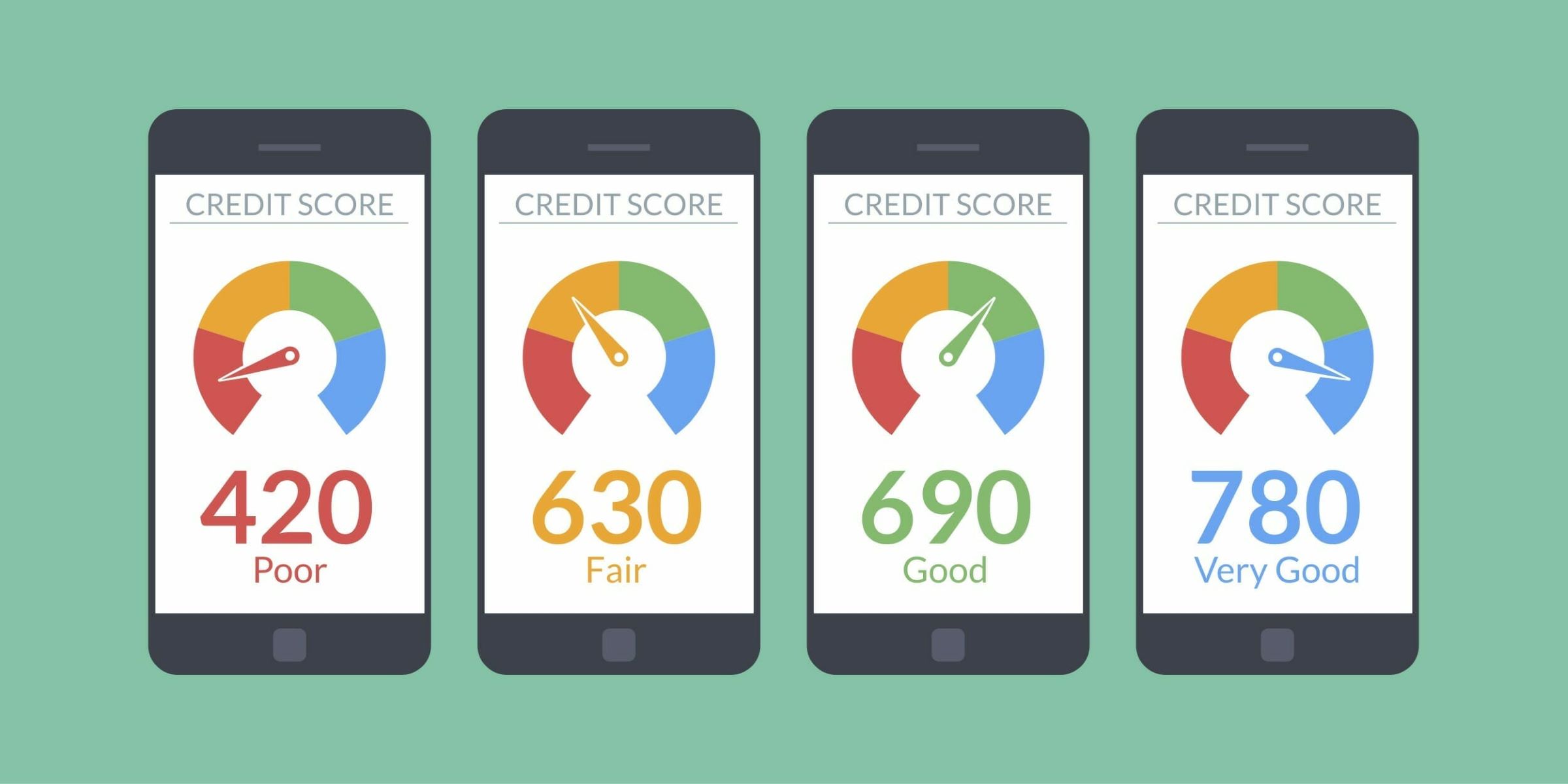

Finance
How To Check Your Auto Insurance Score
Modified: December 30, 2023
Learn how to check your auto insurance score and improve your financial health. Understand the factors that affect your score and take steps to save money on your car insurance.
(Many of the links in this article redirect to a specific reviewed product. Your purchase of these products through affiliate links helps to generate commission for LiveWell, at no extra cost. Learn more)
Table of Contents
- Introduction
- What is an Auto Insurance Score?
- Why is Your Auto Insurance Score Important?
- How is Your Auto Insurance Score Calculated?
- Factors That Affect Your Auto Insurance Score
- How to Check Your Auto Insurance Score
- Understanding Your Auto Insurance Score Report
- Improving Your Auto Insurance Score
- Conclusion
Introduction
When it comes to managing your finances, understanding your credit score is crucial. But did you know that you also have an auto insurance score? Your auto insurance score is a key factor that insurance companies use to determine your premium rates and assess your risk as a driver.
Many people are unaware of the importance of their auto insurance score and how it can impact their coverage and costs. In this article, we will delve into the intricacies of your auto insurance score, including what it is, why it matters, and how you can check and improve it.
Before we dive into the details, let’s clarify what an auto insurance score actually is. Similar to a credit score, an auto insurance score is a three-digit numerical value that represents your overall risk as a driver. It is based on various factors such as your driving history, claims history, credit history, and other pertinent data.
Your auto insurance score is used by insurance companies to assess the likelihood of you filing a claim in the future. The higher your score, the lower the risk you are perceived to be, which can result in lower premium rates. On the other hand, a lower score may indicate a higher risk and potentially lead to higher premiums or even difficulty in obtaining coverage.
Understanding your auto insurance score is essential because it gives you insight into how insurance companies view you as a driver and how they determine your rates. By knowing your score, you can take steps to improve it and potentially save money on your auto insurance policy.
So, if you’re curious about your auto insurance score and want to learn more about why it matters and how you can check and improve it, read on. The next sections will provide you with all the information you need to navigate the world of auto insurance scoring with confidence.
What is an Auto Insurance Score?
An auto insurance score is a numerical value that represents your risk as a driver in the eyes of insurance companies. It is a tool that insurers use to evaluate the likelihood of you filing a claim in the future. This score is based on various factors, such as your driving history, claims history, credit history, and other relevant data.
Unlike a credit score, which is focused on your financial responsibility, an auto insurance score specifically assesses your risk as a driver. It takes into account variables like your accident and traffic violation history, the type of vehicle you drive, and even your credit information.
The purpose of an auto insurance score is to enable insurance companies to provide you with a personalized premium rate that reflects your risk level. A higher score typically indicates that you are a low-risk driver, while a lower score suggests a higher risk profile.
Auto insurance scores are calculated using complex algorithms developed by insurance companies or third-party vendors. These algorithms consider multiple factors and assign corresponding weights to each one to calculate the final score.
It’s important to note that auto insurance scores are not the same as credit scores. While credit information plays a role in determining insurance scores, they are not solely based on financial data. Rather, they incorporate a range of driving-related factors to provide a more comprehensive assessment of your risk as a motorist.
Insurance companies use auto insurance scores to determine your premium rates. If you have a high score, you will likely be seen as a reliable and responsible driver, which may result in lower premiums. Conversely, a lower score may signal a higher risk, leading to higher premiums or potentially even difficulty in obtaining coverage.
Now that you understand what an auto insurance score is and how it is used, let’s explore why it’s important in the next section.
Why is Your Auto Insurance Score Important?
Your auto insurance score plays a crucial role in determining your insurance premiums and coverage options. Insurance companies use this score to assess your risk level as a driver and to calculate the likelihood of you filing a claim in the future.
Here are a few key reasons why your auto insurance score is important:
- Premium Rates: Your auto insurance score directly impacts the premium rates you are offered. A higher score suggests that you are a low-risk driver, potentially resulting in lower premiums. On the other hand, a lower score may indicate a higher risk profile, which can lead to higher premium rates. Understanding your auto insurance score allows you to have a better idea of what kind of rates you can expect and provides an incentive to improve your score if necessary.
- Insurance Coverage: Your auto insurance score can also influence the coverage options available to you. Insurance companies may offer different coverage tiers or discounts based on your score. Those with higher scores may have access to more comprehensive coverage options, while those with lower scores may be limited to basic coverage or face higher deductibles.
- Insurability: In some cases, a low auto insurance score may make it difficult for you to obtain coverage from certain insurance providers. Some companies may have strict underwriting guidelines that categorize individuals with lower scores as high-risk drivers, leading to potential coverage denials or limited options. By understanding your score, you can proactively work towards improving it and increasing your chances of securing the coverage you need.
- Financial Impact: Your auto insurance premiums are a recurring expense that can significantly impact your budget. By improving your auto insurance score, you may be able to secure lower rates and save money over time. This can free up funds for other financial goals or provide a buffer in the event of unexpected expenses.
In summary, your auto insurance score is important because it directly affects the cost of your premiums, the coverage options available to you, and even your overall insurability. By understanding your score and taking steps to improve it, you can potentially save money on your auto insurance and have greater peace of mind knowing that you are insuring yourself at the best possible rates.
How is Your Auto Insurance Score Calculated?
The calculation of your auto insurance score involves a complex algorithm that takes into account various factors related to your driving history, claims history, credit history, and more. Insurance companies, as well as third-party vendors, use these algorithms to determine your risk level as a driver and assign you a corresponding score.
While the exact formulas used may vary between insurance companies, here are some common factors that are often considered when calculating your auto insurance score:
- Driving History: Insurance companies will assess your driving history, looking at factors such as the length of time you have held a driver’s license, any accidents or traffic violations you have been involved in, and the severity of those incidents. A clean driving record with few or no accidents or violations will generally have a positive impact on your score.
- Claims History: Your claims history is another crucial factor. Insurance companies will consider the number and types of claims you have filed in the past. Those with a history of frequent claims may be perceived as a higher risk and can potentially have a lower score.
- Credit History: While controversial, credit history is often used as a factor in calculating auto insurance scores. Insurance companies believe that individuals with better credit scores are more likely to be responsible drivers, leading to fewer claims. Consequently, a good credit history can have a positive influence on your auto insurance score.
- Vehicle Type: The type of vehicle you drive can also impact your auto insurance score. Insurance companies assess the safety ratings and theft rates associated with your vehicle’s make and model. Cars with high safety ratings and low theft rates generally result in better scores.
- Age and Experience: Younger and less-experienced drivers tend to have higher auto insurance scores due to their increased risk of accidents and lack of driving history. As you gain more experience and maintain a clean driving record, your score may improve.
It is important to note that each insurance company may have its own weighting system for these factors, meaning that the impact of each factor on your score may differ. Additionally, some insurance companies may use additional factors not listed here to calculate your auto insurance score.
To calculate your auto insurance score accurately, insurance companies typically obtain data from various sources. These sources may include your credit reports, driving records, and claims history. By analyzing this data and applying their respective algorithms, insurers can generate an auto insurance score that represents your risk as a driver.
While the specific formulas used to calculate auto insurance scores are proprietary information held by insurance companies, understanding the general factors considered can provide valuable insight into how your score is generated.
Factors That Affect Your Auto Insurance Score
Several key factors come into play when determining your auto insurance score. Insurance companies take these factors into account to evaluate your risk as a driver and set appropriate premium rates. Understanding these factors can help you identify areas that may be impacting your score and take steps to improve it.
Here are some common factors that can influence your auto insurance score:
- Driving History: Your driving history plays a significant role in determining your auto insurance score. Insurance companies look at factors such as the number of accidents you’ve been involved in, traffic violations, and any previous claims. A clean driving history with minimal incidents will generally result in a higher score.
- Claims History: Insurance companies also consider your claims history. If you’ve frequently filed claims in the past, it may indicate a higher likelihood of filing future claims, which can impact your score negatively.
- Credit History: While controversial, credit history is a factor that many insurance companies use to assess risk. Individuals with good credit scores are typically seen as more responsible and less likely to file claims. A good credit history can positively impact your auto insurance score.
- Vehicle Type: The type of vehicle you drive can influence your auto insurance score. Insurance companies consider factors such as the vehicle’s safety ratings, theft rates, and repair costs. Cars with high safety ratings and lower chances of theft generally result in a higher score.
- Age and Experience: Younger and less-experienced drivers are often considered higher risk, as they have less driving experience and may engage in riskier behaviors. As you gain more driving experience and maintain a clean record, your score may improve.
- Location: Your geographical location can impact your auto insurance score. Factors such as the rate of accidents, crime rates, and the prevalence of insurance fraud in your area can affect how insurers perceive your risk.
- Usage Patterns: Insurance companies may consider how you use your vehicle, such as daily commute distances or if you use your car for business purposes. Drivers with longer commutes or who use their vehicles for business may be seen as having a higher risk of accidents.
It’s important to remember that different insurance companies may weigh these factors differently when calculating your auto insurance score. Additionally, each factor may have varying levels of impact on your score depending on your insurer’s algorithms.
By understanding the factors that can affect your auto insurance score, you can take steps to mitigate any risks or improve areas where your score may be lacking. Developing a clean driving record, maintaining good credit, and choosing a safe vehicle are just a few ways you can positively impact your auto insurance score and potentially secure better rates and coverage.
How to Check Your Auto Insurance Score
Checking your auto insurance score is a simple and important step towards understanding how insurance companies perceive your risk as a driver. While not all insurance companies provide direct access to your auto insurance score, there are several ways you can obtain this information:
- Contact Your Insurance Company: Start by reaching out to your current auto insurance provider. They may be able to provide you with your auto insurance score directly or guide you to a third-party source that can provide this information. Be prepared to provide them with relevant personal details, such as your policy number or social security number, to verify your identity.
- Third-Party Websites: There are several reputable websites that offer access to your auto insurance score for free. These websites gather information from various sources and provide you with a detailed report, including your auto insurance score. Some popular options include Credit Karma, Credit Sesame, and WalletHub. Keep in mind that while these websites can give you a general idea of your score, the score provided may not be identical to the one used by your specific insurance company.
- Insurance Agent or Broker: If you have an insurance agent or broker, they can often help you access your auto insurance score. They have expertise in the field and can assist you in understanding your score and its implications. They may also offer suggestions on how to improve your score, potentially leading to better premium rates and coverage options.
When checking your auto insurance score, it’s important to ensure your personal information is secure. Only provide your details to trusted sources and avoid sharing sensitive information on websites that appear questionable or unverified.
Remember, your auto insurance score is just one piece of the puzzle when it comes to determining your insurance rates and coverage options. Factors such as your driving history, claims history, and credit score also play a role. By reviewing your score and understanding the factors that impact it, you can gain valuable insights into how insurance companies assess your risk and make more informed decisions regarding your auto insurance coverage.
Understanding Your Auto Insurance Score Report
When you receive your auto insurance score report, it may contain a wealth of information that can help you better understand how insurance companies view you as a driver. Here are some key aspects to consider when interpreting your auto insurance score report:
- Auto Insurance Score: The report will provide your auto insurance score, which is typically a three-digit number. This score represents your risk level as a driver, with higher scores indicating lower risk and vice versa.
- Factors Affecting Your Score: Your report may outline the specific factors that influenced your auto insurance score. This could include details about your driving history, claims history, credit history, and more. Understanding these factors can give you insights into what areas you may need to improve to boost your score.
- Comparison to National Average: Some reports may provide a comparison of your auto insurance score to the national average. This can give you a sense of where you stand relative to other drivers in terms of risk assessment.
- Suggested Actions: To help you improve your score, the report may offer suggestions or recommendations. These could include steps like maintaining a clean driving record, paying bills on time to improve your credit, or taking defensive driving courses.
- Impact on Premiums: The report may also outline how your auto insurance score affects your premium rates. It may explain how a higher score can lead to discounts or lower rates, while a lower score may result in increased premiums.
- Accuracy of Information: Finally, ensure that the information provided in your auto insurance score report is accurate. If you notice any errors or discrepancies, reach out to the reporting agency or your insurance company to correct the information.
Remember, your auto insurance score report is a valuable tool that can help you understand how insurance companies evaluate your risk as a driver. By reviewing and analyzing the information in your report, you can identify areas for improvement and potentially take steps to lower your premiums and secure better coverage options moving forward.
Improving Your Auto Insurance Score
If you’ve checked your auto insurance score and found that it’s not as high as you’d like, don’t worry. There are steps you can take to improve your score over time. Here are some strategies to help boost your auto insurance score:
- Maintain a Clean Driving Record: Avoid accidents and traffic violations as much as possible. Being a safe and responsible driver can have a positive impact on your auto insurance score. Follow traffic laws, practice defensive driving, and stay vigilant on the road.
- Pay Bills on Time: Your credit history can factor into your auto insurance score. Pay your bills, including credit card payments and utility bills, on time to maintain a good credit score. Late payments and outstanding debts can negatively affect your score.
- Reduce Credit Utilization: Keep your credit card balances low and avoid maxing out your credit limits. High credit utilization ratios can indicate financial instability and increase the risk factor assigned to you by insurance companies.
- Consider Defensive Driving Courses: Taking a defensive driving course can demonstrate your commitment to safe driving and may earn you a discount from your insurance provider. These courses can also refresh your knowledge of traffic laws and safe driving practices, helping you become a better driver.
- Review and Update Policy Details: Regularly review your auto insurance policy details with your insurance provider. Ensure that your information is accurate and up-to-date. If you’ve made improvements to your credit or driving history, notify your insurer so they can reassess your score.
- Shop Around for Quotes: Consider obtaining quotes from multiple insurance companies to find the best rates and coverage options for your improved auto insurance score. Different insurers may weigh factors differently, so you may be able to find a better offer elsewhere.
- Practice Safe Vehicle Ownership: Investing in safety and security features for your vehicle, such as anti-theft devices or a dashcam, can help lower your risk profile. Insurers may view your vehicle as less likely to be stolen or damaged, resulting in a higher auto insurance score.
- Become a Long-Term Customer: Loyalty with an insurance company can sometimes lead to rewards. As you maintain a positive driving history and improve your credit score, your insurance company may increase your auto insurance score over time, resulting in potential premium discounts.
Keep in mind that improving your auto insurance score is a gradual process. It requires consistent effort and responsible behavior. It’s important to be patient and stay committed to safe driving and maintaining a good credit history.
By implementing these strategies and maintaining a focused approach, you can gradually improve your auto insurance score. As a result, you may be able to enjoy lower premiums, broader coverage options, and greater financial security in the future.
Conclusion
Your auto insurance score is an essential factor in determining your insurance premiums and coverage options. It represents your risk as a driver and is influenced by various factors such as driving history, claims history, credit history, and more. Understanding your auto insurance score is crucial for managing your finances and making informed decisions when it comes to your auto insurance coverage.
In this article, we explored the significance of your auto insurance score and why it matters. We discussed how your score is calculated and the factors that can affect it. Additionally, we provided guidance on how to check your auto insurance score through your insurance company, third-party websites, or by consulting with your insurance agent or broker.
Moreover, we emphasized the importance of understanding and interpreting your auto insurance score report. This report provides insights into the factors affecting your score and may offer recommendations on how to improve it. By reviewing your report, you can take actionable steps to positively impact your score and potentially lower your premiums.
We also shared strategies to help improve your auto insurance score, including maintaining a clean driving record, paying bills on time, reducing credit utilization, and considering defensive driving courses. Making these adjustments, along with reviewing and updating your policy details and shopping around for quotes, can contribute to an improved auto insurance score and more favorable insurance premiums.
In conclusion, your auto insurance score is a valuable tool that can help you navigate the world of auto insurance. By understanding your score, taking steps to improve it, and maintaining a responsible driving and financial record, you can secure better rates and coverage options, ultimately providing you with greater peace of mind on the road.














